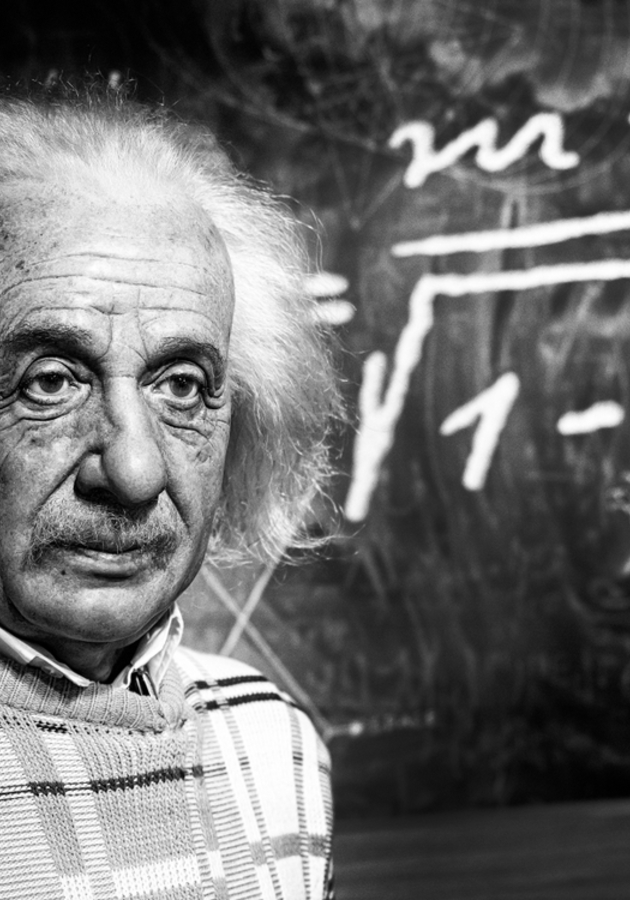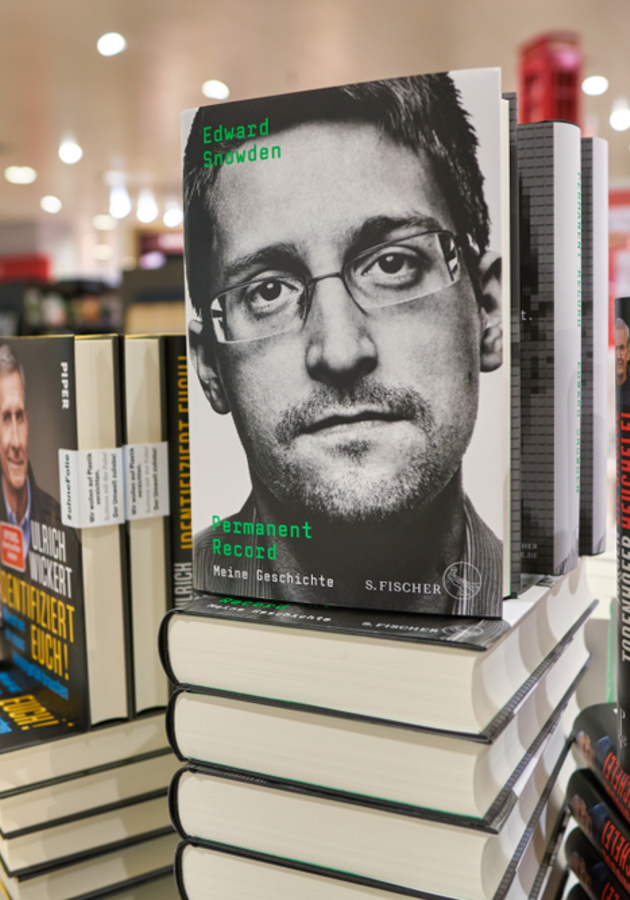Have you focused on many things and have many life goals? The authors of this book, Gary Keller, and Jay Papasan will show you that having many goals is not always the best way to succeed. The ONE Thing book shows us how to achieve better results quickly, how to have less stress in your professional and personal life, how to recharge your energy and how to achieve your goals successfully. The authors recommend that you focus on "one thing." The one thing is what you want most of all, your primary purpose, which will help you to achieve all your other goals. Think about what is most important to you and learn to identify your "one thing" in this microbook!
The Mith of Productivity
Nowadays, many believe in some myths and lies related to productivity. The first myth is that everything has the same importance. False. Many of our activities are unrelated to productivity because they are not as important as others. For example, if a person has a to-do list, they can have a greater sense of accomplishment when they complete that list. But if the list is full of banal things, ending it will not make that person more productive.
Here is the difference between people who do things and those who do not. While those who don't do everything they believe to be important, those who do it use a different tactic. They have a definite goal ahead of them and a clear sense of priority over what they want to do and where they want to be. So instead of having a long to-do list, they focus on a short list of things that must be done. When you concentrate on real priorities, and always work toward a goal, you can accomplish much more.
For example, the Italian economist Vilfredo Pareto, in the 19th century, developed the famous 80/20 principle. According to their calculations, 20% of the population owned 80% of the land. A General Motors executive in 1930, Joseph Juran, described this principle as "the vital few and the many trivial." The most valuable lesson about this principle is that you should focus on just one thing.
According to author Richard Koch, the 80/20 Principle has always been one of the most valuable guides of his career and went further by implementing the Pareto rule. He said that if you take 20% of the 20% of the 20%, and keep doing it, you will soon reach the most important point. We must begin with that which is in front of us and progressively cut off things that are less important to reach our goal until we finally reach the most important issue. This "The one thing" that we should pay more attention.
The Multitasking Problem
Professor Clifford Nass in 2009 explained what it is to work doing multitasking. Nass did a study with 262 students, who were apparently able to perform multiple tasks with ease. However, when his research ended, he was stunned by the results, which suggested that multitasking was an inefficient way of doing things.
But why does multitasking not work the way we think? There are many explanations for this.
-
When someone interrupts us in our workflow, getting back to the speed of before takes a lot of time. The most important question about multitasking is that when you decide to switch tasks, there are always losses in efficiency.
-
Every time we choose to change jobs, there is a risk that we will not be able to return to the "original" task. That's why multitasking always increases your chance of being distracted.
-
When we do more than one task, we will always take more time to finish. Therefore, multitasking is an inefficient way of working.
-
Perhaps the most significant drawback of multitasking is increasing the chances of making mistakes because when we do more than one task at a time, we do not pay full attention to what's important.
-
It is a known fact that multitasking increases the level of stress. When a person's stress level is too high, they reduce their effectiveness.
-
Also, a multi-tasker prefers new information in favor of old ones, regardless of the value of that information.
Many problems arise for those who believe they can do more than one thing at a time. They would not be able to perform any of the activities as well as they could if they were done individually because humans are creatures designed to accomplish one task at a time.
The Power of Discipline and Habit
How does discipline influence our success? In many societies, people learn that if they want to succeed, they need to be trained. If someone does not reach a certain degree of success, this suggests that she/he has not been disciplined enough. But this is not entirely accurate.
Instead of working to be "disciplined," which can mean different things to different people, each person should work to develop individual productive habits. Many social scientists have discovered that it takes about 60 days for a person to get a habit. Besides, the authors suggest that we should build one habit at a time. Successful people are not those who excel in all areas, but those who choose to do various things in their lives and then create productive habits independent of those activities. Of course, over time, they do well and become very good at those selected activities, which are based on the habits they have developed.
Also, when the habit becomes part of a person's life, it makes the activity associated with it easier. Practice makes daily routine simpler. When a person has productive habits and precise routines, their life becomes easier. The way forward will be much clearer.
Success is a sprint race, and disciplined practice will allow you take control.
Use Your Willpower Correctly
There is another myth, which says that willpower to do anything is always available and can be "recalled" when necessary. A common saying illustrates this idea: "Where there is will, there is a way. "This" rule, "says that if we want to achieve something, we need to desire it earnestly, more than anything else.
The truth is that at times it seems we can achieve almost everything. Our willpower is too high. However, there are times when it seems we are not doing anything right, and at those times we cannot rely on our willpower.
When it comes to productivity, for most willpower is great at the beginning of the day, but eventually, dissipates. Pauses, such as lunch breaks or afternoon breaks, increase our willpower, but they need to be constantly replenished. The question is: how can we put willpower in productive work? Some suggestions are:
We should respect our willpower at any time and take advantage when it is available. However, willpower should never be underestimated.
To achieve maximum productivity, the most demanding tasks should be assigned at times when you have greater willpower, usually at the beginning of the day.
One very important thing for our brains is to replenish it with the proper type of food. The right kind of food will allow our brains and bodies to focus and be highly productive. Also, if a person needs to make an important decision, it is advisable for that person to eat healthy and quality food. This way the brain will have high levels of energy.
The right time is very important for willpower. When your willpower is used, you should rest for a while or eat something of quality. That will replenish your levels of willpower.
Live a Balanced Life
Although many people talk regularly about a balanced life, the truth is that no one seems to get there. A balanced life is a myth, and it is impossible to achieve. That is because if a person focuses completely on achieving his goals, there is no time for anything.
Also, in the world of professional success, the most important ingredient to success is the time a person invests. If she wants to achieve superiority in what she does, she must choose what really matters and invest all the time she needs to complete the task.
Many people are constantly striving to achieve the perfect balance between a good working life and a good personal life, but instead of trying to do this, they should follow this advice:
-
A person must separate life into two parts, personal and professional.
-
After doing this, these two parts should be cared for wisely. That means that a person's "One Thing" should receive a disproportionate amount of time.
-
When you are not working, your personal life should be "counterbalanced." It is imperative that one knows how to provide the right amount of attention to both sides.
Do Not Be Afraid of Dreaming Big
Many never pursue their big dreams. The reason for this is that they begin to believe that everything that is too big is too bad. Many are afraid of being successful and decide to settle for less. Instead of thinking and living like this, we should develop the habit of "thinking big."
A big-thinker will act and react differently from an individual who thinks small. Here are also some important ingredients to think big:
-
Instead of choosing between the traditional life and career recipes that society recommends, you should imagine all possible paths and their results.
-
Be smart and brave. You should look for systems, models, relationships, and habits that have worked for others who have succeeded and follow their example.
-
Failures are an integral part of the journey. Instead of looking for them as evidence that you are bad at something, learn to think of failure as a temporary delay. Learn from your mistakes and keep moving forward.
What Is Your "One Thing"?
To be successful and accomplish great things, you must first find out what is your "One Thing." These three steps will help you discover:
-
Your "one thing" is an incentive that is always more important than any other.
-
Success will follow you after you've achieved your "one thing."
-
Success will always leave clues. To conquer great things, you need to ask yourself and answer a simple question: "what is the one thing I can do now that will make all the others much easier or unnecessary?" This issue is important because it opens the road to success, eliminating everything that could get in the way.
Even when a person discovers what their "one thing" is, they must remember that success does not happen overnight. Success is built gradually, similar to a row of dominoes. We start by knocking down a little domino, hitting others, and so on. For a person to achieve success, it is necessary to start small.
Regarding the third point about success leaving clues, the secret is to get started. Itis connected to another question: "What can you do now that will make things easier? "For example, a person might ask what she can do to increase her sales by 10% next year. This approach also gets bigger over time. Of course, after increasing your sales by 10%, the next question will be something like "What can I do to double my sales next year? "
When you discover what your "one thing" is, you are putting yourself on the path toward your highest goal. Big, specific questions always lead to big, accurate answers, which eventually leads you forward.
Be Ready to Sacrifice
Can we achieve extraordinary things? The easiest answer to this question is that we should live our lives with a clear purpose. To do this, we must find out what motivates us and what we want more than anything else.
Our purpose is the source of our happiness and also the source of our strength. We need to know what we want and strive to achieve that goal. People who have a definite purpose in their lives are more likely to achieve them.
Once we discover our "one thing," we must live for productivity. It means that to achieve the "one thing," we must know how to avoid things that are distractions and keep us from achieving our goals, wasting our time, resource and energy.
Final Notes:
"The one thing" is a plan of action to achieve a goal in a specific way. Instead of trying to achieve multiple goals at once, the emphasis here is on how to achieve just one goal - the one that is most important to each person.
It is important to mention that the "one thing" is not achieved in a short period. On the contrary, you have to work hard to discover and conquer this "one thing." Also, habits are very important. With the development of beneficial habits, we can progress more easily toward our goals.
12min tip: Did you find your one thing? Want to perform and get there at high speed and performance? We recommend that you take a look at our microcard based on Grant Cardone's 'The 10x Rule: The Difference Between Success and Failure'.





























